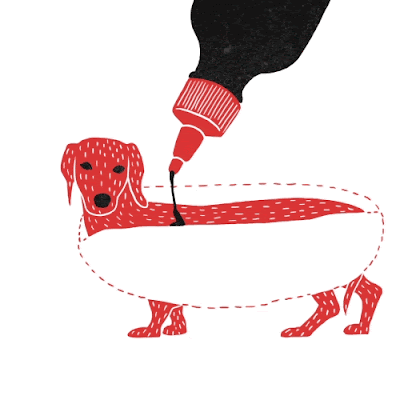本周紐約時報最新文章選讀 - 給有懼高症的你 An extreme or irrational fear of heights - Acrophobia
提升托福閱讀成績最佳方法就是養成固定閱讀的習慣
一旦練就了超強的英文閱讀實力,你將一生受惠
好的語言能力
永遠都是最受用的學習工具
每天廣泛閱讀文章
還能獲得常識,這是語言學習之外的另外一種獲得
此篇文章老師原本偷懶
找到了中文翻譯想省點翻譯整理的時間
可是發現中文譯者的翻譯其實有非常嚴重的歐式語法
(這是目前譯者普遍存在的問題)
所以我即便是閱讀中文
還是看不太懂
有些翻譯得比較不通順的地方
我已經標示出來並且進一步解釋
也把實用的單字圈出來給大家參考
願意向閱讀高分挑戰的同學
請耐心閱讀文章
務必每一句都看懂才能休息
八周一輪的課程結束後
同學請繼續來部落格吸收英文維他命
我將會定時推出新的文章與廣播內容
同學有問題也請留言
私人問題請提供email帳號
我就不在網誌上回答
(同學請儘量問跟托福或是留學相關議題)
From the New York Times
On the Playground, Learning Life’s Risks
By John Tierney
陳世欽譯
In the 1990s, seesaws and tall slides disappeared from city parks around America as playground equipment was deemed too risky. Now, researchers are questioning the value of safety first playgrounds. Critics say these playgrounds may leave children with anxieties and fears that are worse than a broken bone.
1990年代,蹺蹺板與高滑梯因為人們認為遊戲場設施太過危險而自美國各地的公園中消失。如今,研究人員開始質疑安全至上的遊樂場的價值。批評者表示,這些遊樂場可能使小孩產生比骨折更糟糕的焦慮與恐懼。
“Children need to encounter risks and overcome fears on the playground,” said Ellen Sandseter, a psychology professor at Queen Maud University in Norway. “Monkey bars and tall slides are great. As playgrounds become more and more boring, these are some of the few features that still can give children thrilling experiences with heights and high speed.” 挪威莫德王后大學的心理學教授艾琳‧桑德塞特說:「孩子們必須在遊戲場上面對危險並克服恐懼。猴架(攀吊架)與高滑梯很好。在遊戲場愈來愈枯燥乏味的現況下,它們是少數還可以透過高度與速度讓孩子們體驗刺激驚悚的設備。」
(注意介係詞使用)In observing children on playgrounds in Norway, England and Australia, Dr. Sandseter identified six categories of risky play: heights, high speed, dangerous tools, dangerous elements, rough play and wandering from adult supervision. The most common is heights. 桑德塞特博士觀察挪威、英格蘭與澳洲小孩在遊戲場遊玩的過程,歸納出六種隱藏危險的遊戲類型,包括高度、高速、危險的工具、危險的因子、劇烈的遊戲,以及脫離大人的監督範圍。最普遍的是高度。
“The best thing is to let children encounter these challenges from an early age, and they will then progressively learn to master them through their play over the years,” she said. 她說:「最上策是讓孩子從小就面對這些挑戰,他們一定會在經年遊戲的過程中,逐漸學會如何應付。
Falls are the most common form of playground injury. But these rarely cause permanent damage. And studies show that a child who is hurt in a fall before the age 9 is less likely as a teenager to have a fear of heights.從高處摔下是最常見的遊戲場意外,不過很少造成永久性傷害。研究顯示,小孩九歲之前有過摔下受傷的經驗,到了十來歲的時候比較不會懼高。
Children use the same habituation techniques developed by therapists to help adults conquer phobias, said Dr. Sandseter and Leif Kennair, a psychologist at the Norwegian University for Science and Technology.
桑德塞特與挪威科技大學心理學家肯奈爾表示,治療師設計來協助大人克服恐懼的適應技巧,也正是小孩子使用的技巧。
“Risky play mirrors effective cognitive behavioral therapy of anxiety,” they write in the journal Evolutionary Psychology . While a youthful zest for exploring heights might not seem adaptive — why would natural selection favor children who risk death before they have a chance to reproduce? — the dangers seemed to be outweighed by the benefits of conquering fear and developing a sense of mastery.
兩人在《演化心理學》期刊上發表的研究報告指出:「隱含風險的遊戲相當於對於焦慮有效的認知行為療法。」童年時期對探究高度興趣特濃,或許看來有違適者生存的原則──天擇為什麼要對在有機會繁衍後代之前去冒生命風險的孩子有利?然而,相對於克服恐懼並產生主控感的好處,這些危險顯得微不足道。
*這一段譯者的翻譯實在是太歐式語法了。讓人即便看了中文也不曉得在說什麼。
第一句的中文意思是風險高的遊戲其實是非常有效的認知行為療法,也就是透過爬高的遊戲去培養對高度的適應感覺,如此一來才不會懼高。
最後一段的意思則是,根據人類進化的理論,最適合的物種才能生存,這些喜歡冒險(甚至不顧死活的孩子)怎麼可能是適合生存的一群呢?因為這些人不是有比較高的意外死亡率嗎?研究學者後來發現,原因可能是危險行為的本身,跟克服恐懼或是駕馭高度的成就相比,其實沒蛇那麼大不了,也就是說,冒點險所要付出的代價,其實沒有那麼高,而且透過這種體驗所獲得的回饋通常更多更好。
“We posit that our fear of children being harmed by mostly harmless injuries may result in more fearful children and increased levels of psychopathology,” the psychologists write.
桑德塞特與肯奈爾說:「我們認為,我們擔心孩子受傷(儘管這些傷勢大致而言並無大礙)的心理,反而會讓他們更容易恐懼,產生精神機能障礙的可能性也會更高。」
The old equipment disappeared from playgrounds because of parental concerns, new safety standards and fear of lawsuits. But some question the value of “safer” equipment.
由於家長擔心、主管當局制訂新的安全標準,以及害怕吃上官司,遊戲場的舊設備消失無蹤。然而部分人士質疑「更安全」設施的價值。
“There is no clear evidence that playground safety measures have lowered the average risk on playgrounds,” said David Ball, a professor of risk management at Middlesex University in London. He noted that the risk of some injuries actually increased on the newer equipment in Britain and Australia.
倫敦密德塞克斯大學風險管理學 教授波爾說:「並無明確的證據足以顯示,遊戲場的安全措施已經有效降低遊戲場隱藏的平均風險。」他指出,事實上,英國與澳洲的較新型遊戲設備產生某些傷害的可能性反而更高。
“If children and parents believe they are in an environment which is safer than it actually is, they will take more risks,” he said. Moreover, “Older children are discouraged from taking healthy exercise on playgrounds because they have been designed with the safety of the very young in mind,” Dr. Ball said. “Therefore, they may play in more dangerous places.”
波爾說:「如果小孩與父母認為,他們所處的環境比實際上更安全,他們會冒更大的風險。此外,家長不會鼓勵年紀比較大的孩子在遊戲場從事有益健康的運動,因為它們是基於小小孩的安全考量而設計。在這種情況下,他們反而可能在更危險的環境下遊戲。」
Adrian Benepe, the New York parks commissioner, said that lately there have been more creative alternatives to the ultra- safe equipment.
紐約公園管理處處長貝涅比表示,近來已有些更富創意的設備,可以取代超安全遊戲設備。
Still, sometimes there’s nothing quite like being three meters off the ground, as Nayelis Serrano, 10, from the South Bronx neighborhood, found as she scaled an old jungle gym at Fort Tryon Park in New York.
儘管如此,有時候離地三公尺 的感覺還是難以取代。10歲的娜耶麗絲‧塞拉諾住在紐約南布朗克斯區,有一天在紐約特萊恩堡公園玩一座老舊的井格木(攀爬架)時,體驗到這種感覺。
“I was scared at first,” she explained. “But my mother said if you don’t try, you’ll never know if you could do it. So I took a chance and kept going. At the top I felt very proud.”
她說:「我最初很害怕。可是我媽咪說,如果妳不嘗試,永遠不可能知道妳能不能辦到。因此,我鼓起勇氣,一路玩下去。到達最高點時,我感到非常驕傲。」
And her mother supported her. “It’s fun,” Orkidia Rojas said. “Why not? It’s kind of dangerous, I know, but if you just think about danger you’re never going to get ahead in life.”
她的媽媽支持她。奧姬蒂雅‧羅哈斯說:「充滿樂趣。何樂而不為?我知道它有點危險,然而如果只是一味顧慮危險,你永遠不可能在生命中超前。」












留言
張貼留言